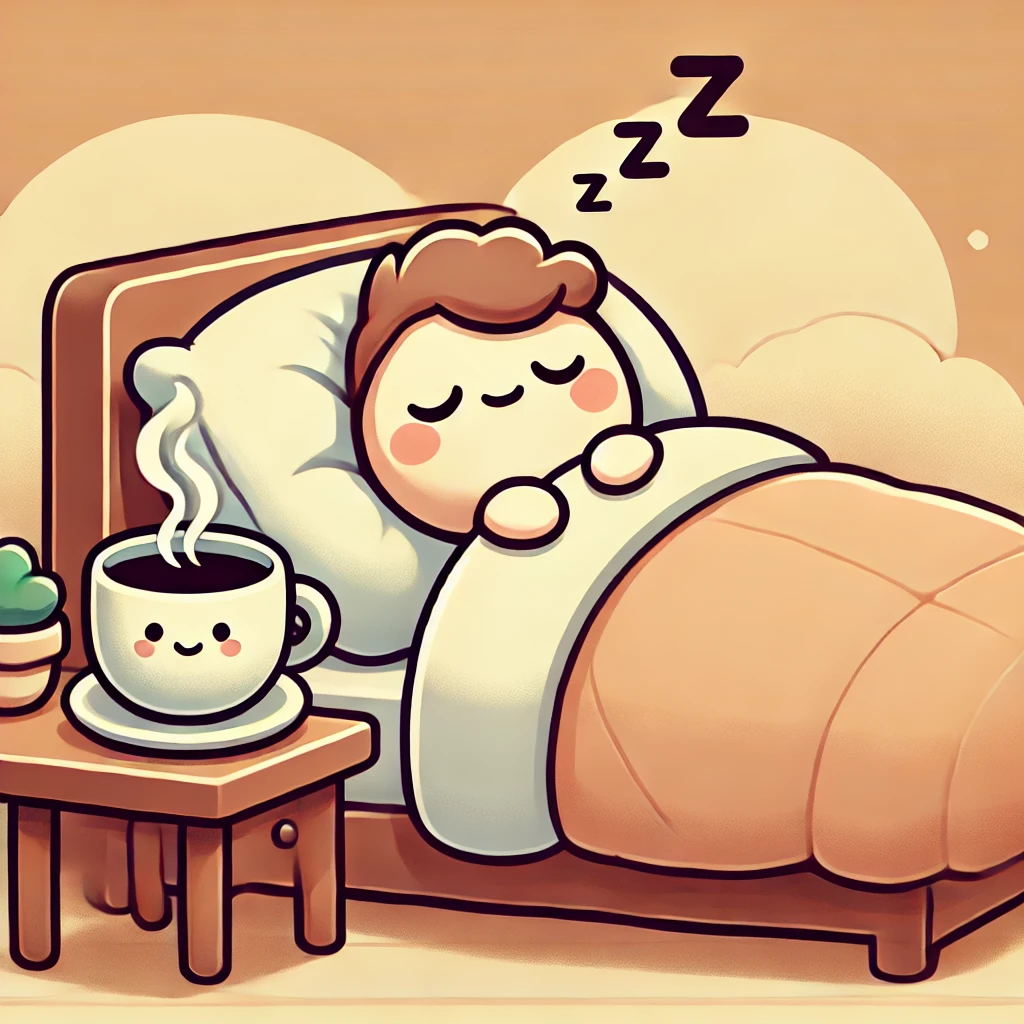Mastering the Art of Sleeping After Coffee: The 2-Minute Trick
Introduction
Did you know that it’s possible to fall asleep within 2 minutes, even after drinking a cup of coffee? Sounds impossible, right? Many people struggle with sleep after consuming caffeine, but with the right techniques and understanding of how your body’s circadian rhythm works, you can master the art of sleeping quickly. This article will guide you through the methods and tips that will help you drift off to sleep effortlessly.
Understanding the Circadian Rhythm
The circadian rhythm is your body’s internal clock, regulating sleep-wake cycles over a 24-hour period. It controls the production of melatonin, the sleep hormone that makes you feel drowsy. When your circadian rhythm is disrupted, it affects your ability to fall asleep and stay asleep, even after drinking coffee.

How Caffeine Affects Your Sleep
Caffeine blocks adenosine receptors in the brain, preventing the feeling of drowsiness. However, this effect varies from person to person. For some, caffeine can stay in the system for up to 8 hours, making it difficult to sleep if consumed too late in the day. But there are ways to counteract caffeine’s stimulating effects and still get a good night’s rest.
Techniques to Fall Asleep Fast After Drinking Coffee
1. Relax Your Muscles: The Jellyfish Technique
The Jellyfish Technique involves consciously relaxing every muscle in your body. Start from your toes and work your way up, paying attention to each part of your body. By focusing on each muscle group and releasing tension, you’ll achieve a state of complete relaxation, making it easier to fall asleep even with caffeine in your system.
2. Deep Breathing Exercises
Engage in deep breathing exercises to calm your nervous system. Take slow, deep breaths through your nose, hold for a few seconds, and exhale through your mouth. This process helps regulate your heart rate and signals your body that it’s time to wind down, counteracting the stimulating effects of caffeine.
3. Progressive Muscle Relaxation
Progressive muscle relaxation is an effective method to fall asleep quickly. Tense each muscle group for 5 seconds and then release. Start with your toes, move to your calves, thighs, abdomen, and so on. This exercise helps in releasing any pent-up tension and reduces the impact of caffeine on your body.
4. Guided Imagery
Engage your mind in guided imagery by visualizing a peaceful place. Imagine yourself in a relaxing environment, such as a beach or forest, and focus on the sights, sounds, and smells. This method distracts your mind from the stimulating effects of caffeine, enabling you to drift off to sleep faster.
Tips for Maintaining a Healthy Sleep Routine
1. Consistent Sleep Schedule
Maintain a consistent sleep schedule, even on weekends. Going to bed and waking up at the same time helps regulate your circadian rhythm and makes it easier to fall asleep.
2. Limit Caffeine Intake in the Afternoon
Avoid drinking coffee at least 6-8 hours before bedtime. This will reduce the chances of caffeine interfering with your sleep cycle.
3. Minimize Exposure to Blue Light
Blue light from smartphones, computers, and TVs can disrupt melatonin production. Reduce screen time at least 30 minutes before bedtime to ensure better sleep quality.
4. Get Morning Sunlight Exposure
Expose yourself to natural sunlight in the morning. This helps regulate your circadian rhythm and boosts serotonin production, which later converts into melatonin, aiding sleep.
Understanding the Role of Melatonin
Melatonin is a hormone responsible for regulating sleep. When you expose yourself to light during the day, your body produces serotonin, which later converts into melatonin at night. For melatonin to be effective, ensure you’re getting enough sunlight during the day and sleeping in a dark environment at night.
The Impact of Sleep Deprivation
Sleep deprivation can lead to serious health issues, including cognitive impairment, weakened immunity, and an increased risk of chronic diseases. It’s essential to prioritize quality sleep, even if you consume coffee regularly.
Why You Might Struggle with Sleep After Coffee
- Caffeine Sensitivity: Some individuals are more sensitive to caffeine, making it harder for them to sleep after consumption.
- Irregular Sleep Patterns: Disrupted sleep patterns can make it challenging to fall asleep, even without caffeine.
- Stress and Anxiety: High levels of stress and anxiety can worsen the effects of caffeine, making it harder to relax and sleep.
How to Reset Your Circadian Rhythm
1. Gradual Adjustments
If your sleep schedule is off, make gradual adjustments by shifting your bedtime and wake-up time by 15-30 minutes each day until you reach your desired schedule.
2. Practice Proper Sleep Hygiene
Create a bedtime routine that promotes relaxation, such as reading a book, taking a warm bath, or practicing meditation.
3. Avoid Stimulants Close to Bedtime
In addition to caffeine, avoid other stimulants like nicotine or heavy meals before bed to improve your sleep quality.
Conclusion
Falling asleep after drinking coffee may seem impossible, but with these proven techniques and tips, you can train your body to relax and drift off in just 2 minutes. Remember, the key is to maintain a healthy sleep routine, manage your caffeine intake, and understand how your circadian rhythm works.













